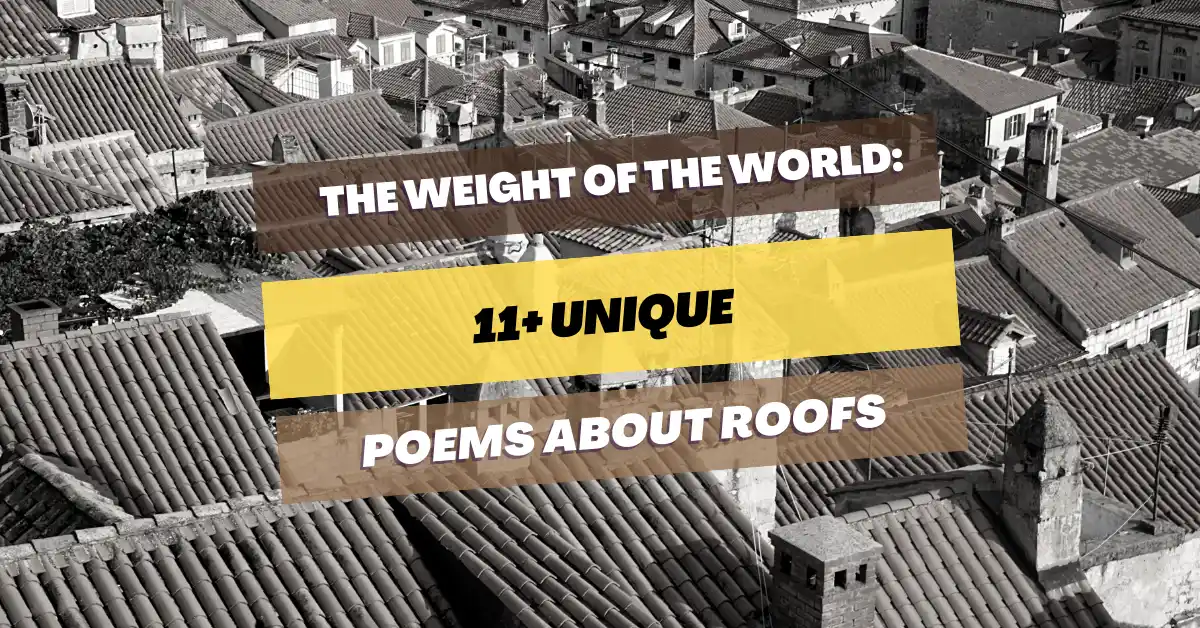11+ Unique Poems About Roofs: The Weight Of The World
From the cozy shelter of a thatched cottage to the towering heights of a skyscraper, roofs play a vital role in our daily lives. They protect us from the elements, keep us safe, and can even inspire moments of poetry.
In this collection, we’ll explore poems about roofs that capture the beauty, complexity, and significance of these essential structures. From the intimate and personal to the universal and symbolic, these poems offer a unique perspective on the role of roofs in our lives and the world around us.
What Are The Best Poems About Roofs?
Conclusion
In conclusion, roofs play a crucial role in protecting us and our homes from the elements. They also serve as a symbol of shelter and safety. These roof poems that we showcase the many facets of this important structure and how it has inspired poets throughout the ages.
From its practical functions to its metaphorical significance, roofs continue to be a source of inspiration and contemplation. Explore the beauty and complexity of roofs through these thought-provoking poems in our latest collection. Discover new perspectives on the often-overlooked structure that keeps us safe.

